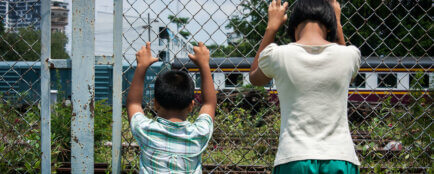What is the minimum subsistence level and what is it for?
The minimum subsistence level is the amount of money the state considers necessary to cover the basic needs of life. These necessities include food, clothing or basic services. It is important to note that the minimum subsistence level does not cover housing costs. This is dealt with separately, for example in the form of a housing allowance.
The amount of the minimum subsistence allowance varies depending on whether it is claimed by an individual or by a multi-person household. However, the family subsistence minimum is not simply the sum of individuals and their entitlements, but is calculated according to specific rules and rates.
The minimum subsistence level is used in particular to calculate entitlement to benefits in material need and state social assistance, to assess the amount of child maintenance, to determine the amount that is uncollectible in the event of execution or insolvency and to grant the status of a person in material need.
The subsistence minimum is regulated by the Act on the subsistence minimum and their main use is determined by the Act on assistance in material need.
Are you solving a similar problem?
We'll help you get the social benefits you're entitled to
Not sure if you are entitled to a living allowance, housing benefit or other benefit in material need? Have you been refused by the authorities and suspect that you have been wrongly refused? We can help you navigate your rights and entitlements under the subsistence or subsistence minimum. We will write up an application, appeal or objection against a decision of the employment office and represent you in proceedings before the office or in court.
That's what I need
- When you order, you know what you will get and how much it will cost.
- We handle everything online or in person at one of our 6 offices.
- We handle 8 out of 10 requests within 2 working days.
- We have specialists for every field of law.
What is the subsistence minimum?
The subsistence minimum is an even lower amount than the minimum subsistence level. The subsistence minimum is meant to ensure a person’s absolute survival, not a normal standard of living, which is what a living wage is for. It is used in exceptional cases when the state does not recognise the claimant’s entitlement to full assistance for various reasons (for example, when a person does not cooperate with the authorities or repeatedly refuses employment).
The subsistence minimum is therefore used as a kind of last safety net – often as a sanction if a person fails to fulfil his or her obligations to the employment office, for example (repeatedly refusing to cooperate with the office, unreasonably refusing retraining or a job offer, not making a long-term effort to increase his or her income) – so instead of the subsistence minimum, he or she receives only the subsistence minimum. This implies that the subsistence minimum is a punitive instrument to motivate a proactive approach.
According to the Labour Office of the Czech Republic, the subsistence minimum cannot be applied to a dependent child, a person receiving an old-age pension, a person with a third-degree disability, and a person over 68 years of age.
What is the living wage and subsistence minimum in 2025?
As of 1 January 2023, the living wage and subsistence minimum have been increased, the current amounts (in 2025) are as follows:
- Subsistence minimum: CZK 3 130
- Individual (subsistence minimum): CZK 4 860
- First adult in the household: CZK 4 470
- Additional adult: CZK 4 040
- Child under 6 years: 2 480 CZK
- Child 15-26 years (dependent): 3 490 CZK
As you can see, the minimum subsistence amount depends on the age of the child, the number of members in the household and their status (whether they are the first or next adult).
How to calculate the minimum subsistence level for a family
The calculation of the minimum subsistence level is always based on the actual income of the entire household. When assessing eligibility for the minimum subsistence income, the following are counted among the incomes:
- wages,
- pensions,
- alimony,
- income from business, rental and capital assets,
- benefits and unemployment benefits.
On the contrary, they are not included:
- housing benefit, housing benefit supplement and one-off social benefits,
- income from the sale of immovable property and severance payments for vacating a dwelling used to meet the cost of housing needs,
- compensation for damages and funds for the consequences of a natural disaster,
- financial assistance to victims of crime,
- social assistance provided by the employer,
- support from foundations and civic associations,
- scholarships,
- rewards for blood donations,
- tax bonus,
- care allowance (for jointly assessed persons), material hardship benefits
- the part of the allowance for the child’s needs that is due for health reasons,
- mobility allowance and special assistance allowance,
- a special pension allowance for participants in the national struggle for the creation and liberation of Czechoslovakia,
- income arising from a decision of the European Court of Human Rights on the basis of just satisfaction or amicable settlement.
For some benefits, income is assessed for the last calendar quarter, for others for the last month. If a household’s income falls below the family’s subsistence level, it is entitled to a subsistence allowance. If an individual’s income falls below the subsistence minimum, he or she may be awarded benefits, but this is often conditional on the person actively cooperating with the authorities.
When calculating a family’s subsistence minimum, the household structure should be taken into account. As an example, here is a calculation for a family with two parents and two children aged 5 and 10.
- First adult: 4 470 CZK
- Second adult: CZK 4 040
- Child under 6 years old: CZK 2 480
- Child 6-15 years: 3 050 CZK
Family subsistence = 4 470 + 4 040 + 2 480 + 3 050 = 14 040 CZK/month.
This amount represents the threshold below which the household income should never fall without the family being entitled to social assistance.
You can apply for material need assistance and state social support benefits at the contact points of the Labour Office of the Czech Republic.
Tip for article
Tip: The social security system in the Czech Republic is one of the most advanced, although many people are not satisfied with it. Find out in which cases and to what extent the state will protect you.
Who is a jointly assessed person?
According to the Ministry of Labour and Social Affairs, jointly assessed persons include
- parents and minor dependent children,
- spouses or partners,
- parents and dependent minor children or adult children, provided that these children share a flat with their parents and are not assessed with other persons,
- other persons sharing the dwelling, except for persons who prove that they do not live together permanently and do not jointly meet the costs of their needs,
- and persons temporarily staying away from the dwelling for reasons of continuous training for a future occupation, health or work (including voluntary service).
Summary
The subsistence and living wage are state social policy instruments that provide basic financial protection for people with low or no income. The subsistence minimum determines the amount necessary to cover basic living needs (excluding housing costs) and its amount varies according to the composition of the household – e.g. for an individual it is set at CZK 4 860 in 2025, for the first adult in the household at CZK 4 470 and for a child, depending on age, between CZK 2 480 and CZK 3 490. The subsistence minimum of CZK 3 130 represents the lowest possible income threshold and is used only in exceptional cases, often as a sanction for non-cooperation with the authorities. Both minima play a role in assessing entitlement to social benefits, maintenance or in enforcement proceedings. The calculation of the household subsistence minimum takes into account the income of all persons assessed together, which includes, for example, parents and children or cohabiting partners. If the household income falls below this threshold, the household may be entitled to material hardship benefits.





